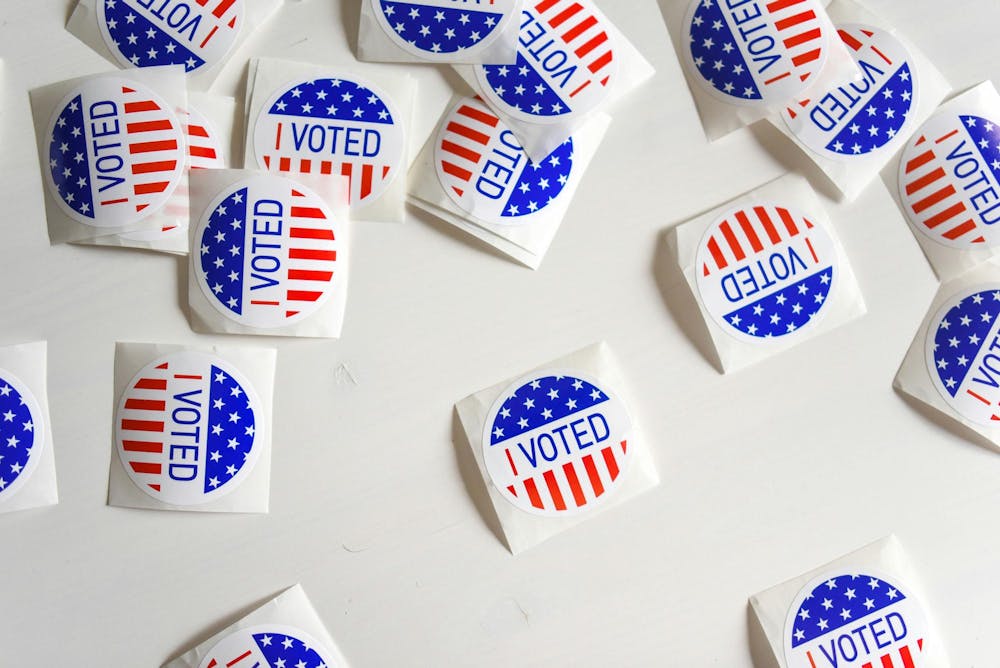I was recently asked the question: “Why should I vote? It’s not like it matters anyway.” At first, I thought the answer was obvious. But upon further consideration, I realized that there was no simple, compelling reason I could give that would realistically change their mind. I needed time to collect my thoughts, develop an argument and plead my case. Well, here it is:
To the person who asked me this question, I hope you are reading. I do think you should vote, and here is why.
Most Americans can express their preferences for political candidates and public policy issues by participating in the electoral process. Despite having the right to express their preferences by voting, many Americans do not participate in elections. Civic-minded individuals like myself are therefore burdened by the question: Why do certain individuals choose not to vote? These individuals include some of my own peers at Notre Dame.
For the left-dominant brains out there, the calculus of voting can help explain this phenomenon. It goes something like this. The calculus of voting, written as V = P(B) - C + D, predicts the electorate’s voting behavior by focusing on the variable V. V represents an individual's likelihood to vote and is calculated using four elements.
The variable P represents the probability that one’s vote will be decisive and is almost certainly small. In other words, what are the odds that your vote will actually affect the outcome of a given election?
P is then multiplied by the variable B, which represents the benefit that an individual will receive if their candidate wins the election. Essentially, how high are the stakes of the election for you personally? How much will your life change for the better (or worse) if this person is elected to office?
The negative variable C represents the costs associated with voting. These may include time or effort spent casting a ballot or information-gathering to determine who you will vote for. Many scholars argue that young people actually face higher voting costs, which is why I am especially interested in convincing my peers and other college-age Americans to vote.
Finally, the newest variable D represents duty, or whether people regard voting as a civic duty. While all of these variables can help explain American voting behavior, I want to focus on the idea of voting as a civic duty — a duty that I believe my generation is starting to forget.
I should start by giving my peers some credit. It is true that about 90 percent of Notre Dame students registered to vote in 2020 and nearly 72 percent of eligible Notre Dame students voted in the 2020 election. While these numbers are extremely high compared to other American colleges and universities, I find the gap between students who registered to vote versus those who actually cast a ballot suspect.
It is true that your vote might not be decisive, especially in solidly partisan states like Indiana. It is true that the differential benefit of one candidate’s success may be small for you. Finally, it is true that voting can be hard. As a college student, my busy schedule makes it difficult to find the time to vote. While I choose to do it anyway, I sympathize with my peers who have to jump over hurdles to engage in mail voting or, perish the thought, absentee voting.
Returning to the concept of civic duty, I do not blame my peers for feeling discouraged and disconnected from the electoral process. The role of social media in citizens’ daily lives gives young voters access to a constant stream of news and information, including negative coverage of politicians and the political system. This infoglut contributes to a distrust of government and the belief that all politicians are corrupt. It is exceptionally hard to deny that young voters exhibit unprecedented levels of cynicism.
Recognizing the inherent value of voting is important. What is more important is the habitual nature of the voting process. Logically, younger voters have not developed the habit of voting. After all, one is more likely to turn out if they view voting as a democratic ritual. Voting is not a concession, and it is certainly not a chore. To vote is to engage in an important ritual that forms the foundation of our democracy (or if you want to be precise, our federal democratic republic) and the safety net of our greatest ambitions and plans. The act of voting is sacred in and of itself. It is how we honor the individuals who died in the effort to secure the universal vote. This not only includes those who serve and have served in our Armed Forces here and abroad but also those who fought and died for basic civil and human rights — including the right to cast a ballot — at home.
It is enough to say that you should vote because you can. And if you can, I believe that you should vote because you have to. I understand and hope to validate your frustration with the political system and the uncertain direction of our country. But I also urge you to think about voting differently. Voting is a privilege. It is your right. And it is an opportunity.
So my pitch to you goes something like this: use it, exercise it and seize it. Vote!
Ashlyn Poppe is a third-year student living in Pasquerilla West Hall studying global affairs and public service. She currently serves as the President of BridgeND.
BridgeND is a multi-partisan political club committed to bridging the partisan divide through respectful and productive discourse. It meets bi-weekly on Mondays at 7 p.m. in Duncan Student Center to learn about and discuss current political issues and can be reached at bridgend@nd.edu.










